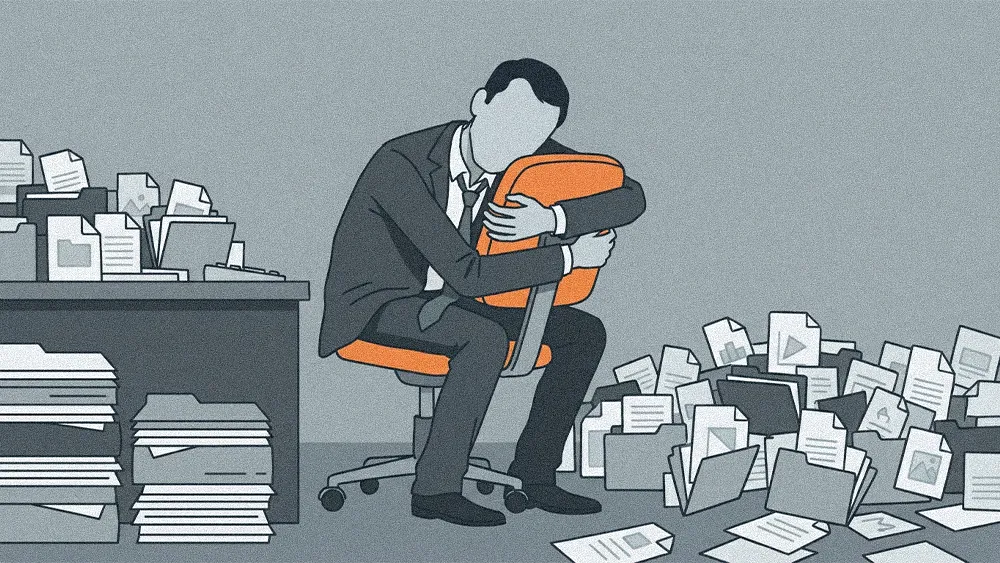Why dismantling HR for people ops exposes companies to unnecessary risk

Key Points
Christopher Martin, HR Director at Serenity Lane, warns that non-specialists handling HR tasks dilute quality and consistency.
Centralizing HR under operations can lead to inconsistent hiring practices and remove essential neutrality safeguards.
HR missteps can be costly, with errors potentially requiring significant new revenue to offset financial losses.
Martin advocates for HR to be measured by the same KPIs as operations to enhance its value and efficiency.
I get why Bolt switched to People Operations—no one wants a middleman. But the need to lead teams and teach others how to lead doesn’t disappear. That work still has to happen. You’re just piling it onto the operations folks.

Christopher Martin
Human Resources Director
Serenity Lane
The promise of a leaner, faster company has leaders dismantling their HR departments. But the responsibilities don’t just disappear; they land on operations teams where lack of expertise leads to mistakes, burnout, and legal risk.
Christopher Martin is the SPHR-certified Human Resources Director at Serenity Lane, an Oregon nonprofit treatment center providing substance use treatment care. He’s seen firsthand what happens when companies sideline HR, and why dismantling it creates more risk than reward.
Master of none: “I get why Bolt switched to People Operations—no one wants a middleman,” Martin says. “But the need to lead teams and teach others how to lead doesn’t disappear. That work still has to happen. You’re just piling it onto the operations folks.”
Martin warns that spreading HR responsibilities across non-specialists doesn’t just increase the workload, it dilutes results. “If you put all that on an operations-focused team, quality is going to drop. Someone in ops just isn’t going to recruit as well as someone who does it full time.”
Neutral ground: Beyond quality concerns, centralizing HR under operations leads to inconsistency that puts companies at risk. “If you put all of that under the manager in operations, you’re going to have five, six, maybe ten different hiring practices, which opens the company up to risk,” Martin explains.
It also removes one of HR’s most essential safeguards: neutrality. “If the manager is the problem, who can an employee go to when that’s the person they report to?” For Martin, the solution is not separation for its own sake, but clarity in responsibility. “My mantra is that I want operations people to be free to do operations work, and I want HR free to do HR work,” he says.
Walking the line: This balance is not a soft skill; it is structural, strategic, and essential. HR creates value by holding space for both the business and its people, even when their interests compete. “A good HR director should be 51% for the company and 49% for the employee,” Martin says. “You’re supposed to be protecting the larger whole without sacrificing the individual.”
Follow the money: Martin believes companies consistently underestimate the cost of HR missteps. “One of my old bosses was an operations guy, and when a recruiter misquoted pay, he said, ‘That mistake just blew our margin,’” Martin recalls. “Now imagine a manager makes a bad hiring decision and you get sued. You pay $25,000 to make it go away—but that’s just the beginning. At an 18% gross margin, you’d need to bring in nearly $140,000 in new revenue just to cover that one mistake.” These errors hit harder than leaders think, and they compound over time.
HR means business: The answer isn’t to eliminate HR. It’s to expect more from it. Martin argues that when HR is measured by the same standards as operations, it earns its seat at the table. “HR teams need to be held to the same KPIs as operations,” he says. “If you tie HR’s performance to business outcomes, then you’ll have the best of both worlds. HR won’t be in the way of ops efficiency.”
A good HR director should be 51% for the company and 49% for the employee. You're supposed to be protecting the larger whole without sacrificing the individual.

Christopher Martin
Human Resources Director
Serenity Lane
A good HR director should be 51% for the company and 49% for the employee. You're supposed to be protecting the larger whole without sacrificing the individual.

Christopher Martin
Human Resources Director
Serenity Lane
Related articles
TL;DR
Christopher Martin, HR Director at Serenity Lane, warns that non-specialists handling HR tasks dilute quality and consistency.
Centralizing HR under operations can lead to inconsistent hiring practices and remove essential neutrality safeguards.
HR missteps can be costly, with errors potentially requiring significant new revenue to offset financial losses.
Martin advocates for HR to be measured by the same KPIs as operations to enhance its value and efficiency.

Christopher Martin
Serenity Lane
Human Resources Director

Human Resources Director
The promise of a leaner, faster company has leaders dismantling their HR departments. But the responsibilities don’t just disappear; they land on operations teams where lack of expertise leads to mistakes, burnout, and legal risk.
Christopher Martin is the SPHR-certified Human Resources Director at Serenity Lane, an Oregon nonprofit treatment center providing substance use treatment care. He’s seen firsthand what happens when companies sideline HR, and why dismantling it creates more risk than reward.
Master of none: “I get why Bolt switched to People Operations—no one wants a middleman,” Martin says. “But the need to lead teams and teach others how to lead doesn’t disappear. That work still has to happen. You’re just piling it onto the operations folks.”
Martin warns that spreading HR responsibilities across non-specialists doesn’t just increase the workload, it dilutes results. “If you put all that on an operations-focused team, quality is going to drop. Someone in ops just isn’t going to recruit as well as someone who does it full time.”
Neutral ground: Beyond quality concerns, centralizing HR under operations leads to inconsistency that puts companies at risk. “If you put all of that under the manager in operations, you’re going to have five, six, maybe ten different hiring practices, which opens the company up to risk,” Martin explains.
It also removes one of HR’s most essential safeguards: neutrality. “If the manager is the problem, who can an employee go to when that’s the person they report to?” For Martin, the solution is not separation for its own sake, but clarity in responsibility. “My mantra is that I want operations people to be free to do operations work, and I want HR free to do HR work,” he says.

Christopher Martin
Serenity Lane
Human Resources Director

Human Resources Director
Walking the line: This balance is not a soft skill; it is structural, strategic, and essential. HR creates value by holding space for both the business and its people, even when their interests compete. “A good HR director should be 51% for the company and 49% for the employee,” Martin says. “You’re supposed to be protecting the larger whole without sacrificing the individual.”
Follow the money: Martin believes companies consistently underestimate the cost of HR missteps. “One of my old bosses was an operations guy, and when a recruiter misquoted pay, he said, ‘That mistake just blew our margin,’” Martin recalls. “Now imagine a manager makes a bad hiring decision and you get sued. You pay $25,000 to make it go away—but that’s just the beginning. At an 18% gross margin, you’d need to bring in nearly $140,000 in new revenue just to cover that one mistake.” These errors hit harder than leaders think, and they compound over time.
HR means business: The answer isn’t to eliminate HR. It’s to expect more from it. Martin argues that when HR is measured by the same standards as operations, it earns its seat at the table. “HR teams need to be held to the same KPIs as operations,” he says. “If you tie HR’s performance to business outcomes, then you’ll have the best of both worlds. HR won’t be in the way of ops efficiency.”




